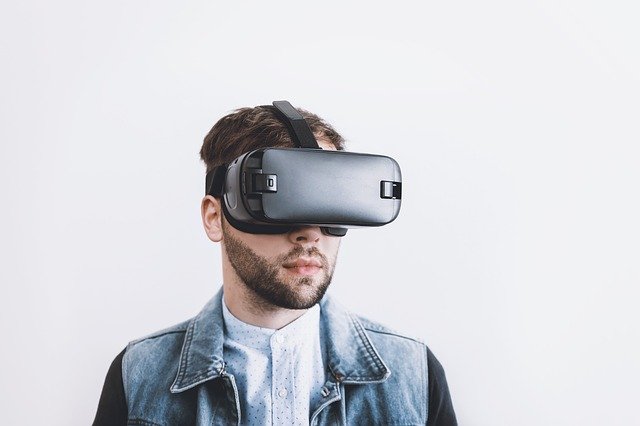It takes seven months to get to Mars in an efficiently engineered spaceship, covering the distance of 480 million kilometers. On this journey, a crew would have to survive in a confined space with no opportunity to experience nature or interact with new people. It is easy to imagine how this much isolation could have a severe impact on the crew’s well-being and productivity.
The challenges long-duration space travellers experience are not foreign to regular folk, although to a lesser degree. Many Canadians experience isolation and loneliness, at least occasionally.
Virtual reality can help people experience what being in space is like.
The loneliness epidemic could be alleviated by an unlikely marriage between space research, virtual reality (VR) and the science of self-transcendent experiences.
COVID-19 lockdowns have created an environment for the largest isolation study in research history. Stay-at-home orders have stopped us from meeting other people and experiencing nature, which has increased rates of loneliness and depression.
Feeling lonely and isolated are associated with a wide range of negative consequences for our well-being, physical and cognitive health. The feeling of connection is crucially important for a happy, healthy and meaningful life.
Simulated isolation
Given the risks associated with isolation, space agencies conduct large-scale simulation studies to investigate and mitigate these effects. SIRIUS (Scientific International Research in Unique Terrestrial Station) is a series of on-land isolation experiments simulating long-term spaceflight.
It is safer and cheaper to perform on-land simulations to assess the effects of isolation on the crew. This also allows space agencies to test the effectiveness of potential solutions that can support the physical and mental health of crew during a long-duration space-flights, such as a trip to Mars.
The Nezemnyy Eksperimental’nyy Kompleks (NEK) facility in Moscow is modelled on the interior of a spacecraft. The SIRIUS—21 crew will live in this space for 240 days. (iSpace Lab), Author provided
SIRIUS-21 is an eight-month isolation study in Moscow that begins on Nov. 4, 2021. A multinational crew of six people will go into a special facility, called NEK, modelling a spacecraft that was built in the 1960s and stay in there for 240 days, partaking in 70 experiments prepared by international research teams.
To explore opportunities for supporting future astronauts on their extraplanetary journeys, iSpace Lab at Simon Fraser University collaborated with a research group at Universitätsmedizin Charité in Berlin to create a VR experience designed to elicit feelings of connection.
Experiences beyond the self
Self-transcendent experiences are a cluster of phenomena and associated emotional states that are characterized by an increased sense of interconnectedness with the world. Awe is a particular kind of a self-transcendent emotion that can be experienced when witnessing something greater than oneself like standing on a mountain top, impressed by the vastness of a landscape beyond its horizon or witnessing a clear starry night. Awe not only supports our well-being, but also makes us more compassionate and pro-social, and even improves our physical health.
While we find awe in many experiences in nature, spiritual practices and culture, it sometimes requires travelling to an awe-inspiring site, like the Grand Canyon, to be experienced. Living in isolation inevitably limits our opportunities for experiencing awe.
My doctoral research investigates the potential of immersive technologies like VR to elicit feelings of connection and support well-being. Together …….
Source: https://thenextweb.com/news/virtual-reality-loneliness-earth-space-syndication

